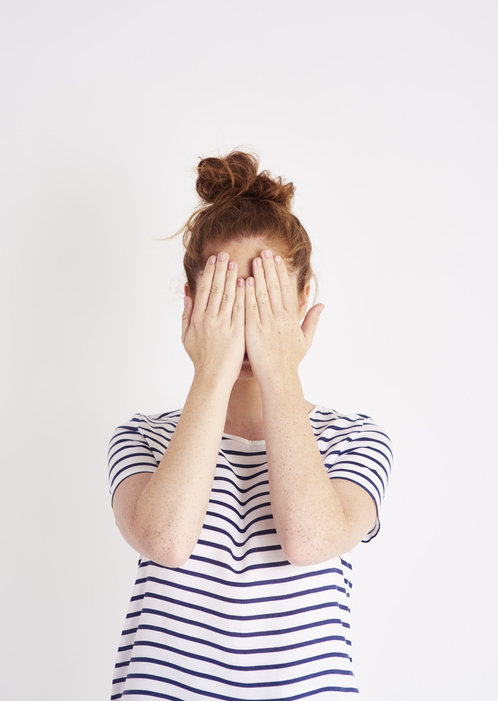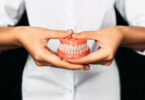Do you have acne? Have you ever popped a pimple only to later regret the scar it left behind? Acne is one of the most common skin diseases out there, affecting some 45 million people just in the United States. Do you know what causes acne? There are ways to prevent and treat acne.
Also known as acne vulgaris, acne is a skin condition that occurs when hair follicles become clogged with oil and dead skin cells. Although it is a physiological condition, when acne occurs repeatedly or severely it can lead to cosmetic concerns as well as reduce the quality of life and confidence of the affected person.
What Causes Acne?
Diet
Eating too many carbohydrates with a high-glycemic index can wreak havoc on your face. Foods such as white bread, white rice, pasta, soft drinks and anything made with white flour like pastries and cake have a high GI. Some research has linked milk with acne eruptions, possibly because of the hormones and bio-active molecules in milk.
Stress
People tend to have acne breakouts during periods of stress due to increased hormone production to fight the stress stimulus.
Makeup
Makeup can cause as well as worsen acne by clogging pores. Bacteria can accumulate on makeup application brushes that aren’t cleaned regularly. You can reduce the damage by using fragrance-free and non-comedogenic, sheer or light-coverage makeup.
Medications
Sometimes, acne can be caused by certain medicines. Drugs such as corticosteroids, lithium, anticonvulsants, barbiturates, androgenic steroids, DHEA and those that contain bromides or iodides may cause acne.
Bacteria
Propionibacterium acnes (P. acnes) is one of the bacteria that plays an important role, both directly and indirectly, in the development of inflammatory acne. The bacteria is normally found on the skin of most people, but can cause acne if other conditions are present. Scientists are studying P. acnes to try and find a vaccine that could treat acne.
Hormones
Preteens often experience initial acne breakouts due to hormone fluctuations. Acne also often occurs during pregnancy — usually during the first and second trimesters — due to an increase in hormones that can make the sebaceous glands grow and produce more sebum. Hormonal fluctuations can also cause acne during the menstrual cycle. Late-onset acne, which affects more women than men, can occur even if someone never had acne before. Women who develop late-onset acne (after age 25) may also have a hormonal imbalance such as PCOS (Polycystic Ovarian Syndrome) or a medical condition called hyperandrogenism.
Sebum and Oil
The normal function of sebaceous glands is to produce and secrete sebum, a group of complex oils that keep the skin moisturized and healthy. An excess of sebum can cause oily skin, and when trapped inside pores with dead skin cells and dirt, can lead to acne.
How Can You Prevent Acne?
Cleansing
Cleaning your skin with the right type of cleanser is an important part of a daily anti-acne routine. The skin needs some natural oils to remain healthy, so cleansing too often can result in over-dryness and irritation. Generally, cleansing twice a day — and after exercising — is sufficient to remove dirt, excess oil and makeup without stripping the skin of the natural oils. Always make sure to wash your face before bed to cleanse away the grime and oil from the day and prep your skin for any topical acne medications.
Sun Protection
Prolonged sun exposure can increase the shedding of dead cells on your skin’s surface. This causes pores to become plugged, leading to acne. Heavy sunblocks can also be an acne culprit as they are occlusive, meaning they form a film on the skin. Use a non-comedogenic sunscreen.
Diet
Try these diet tips to help prevent acne:
- Swap brown rice for white rice or use a mixture of brown and white rice.
- Try whole grain or multigrain bread instead of white bread.
- Chose oats instead of regular cornflakes.
- Eat apples, pears and other skinned fruit with the skin on — skin is rich in fiber and antioxidants (but be sure to wash thoroughly before consuming).
- Include more Vitamin A, C and E in your diet to support immune function and prevent the damaging effects of free radicals.
- Drink lots of water.
Limit Stress
Limit stress by prioritizing workloads, exercising, doing yoga, listening to music and talking things out with family and friends.
Sleep
Ensure you are getting sufficient sleep of at least 7-8 hours a night. The body repairs itself and recovers while you sleep.
Cell Phones
Use an earpiece instead of putting your phone directly to your face.
If you prefer not to use an earpiece, make sure to clean your phone regularly. For cleaning, try a microfiber/lint-free cloth or a cotton swab spritzed with alcohol.
Avoid Touching your Face
Even after you wash your hands, avoid touching your face. Don’t sit with your hand resting on your face (a common study position), which can cause breakouts.
How Do We Treat Acne?
One of the common myths about acne is that you should let it run its course. However, many effective treatment options are available. Not treating your acne as soon as possible can result in low self-esteem, dark spots and acne scars. Scars in particular are difficult to treat and may require procedures like microneedling and laser therapy.
Active acne can be treated quickly and effectively, with various options depending on the severity. As tempting as it can be, don’t rub, squeeze or pop pimples, which can lead to scarring or pigmentation.
For very mild acne, some non-prescription topical preparations like benzoyl peroxide (BPO), azelaic acid or salicylic acid can be used. However, prescription tretinoin and adapalene gels as well as prescription-strength BPO may be required in some cases for better results.
For mild to moderate acne, fixed dose combinations including adapalene plus BPO or BPO plus clindamycin are often used. The use of oral antibiotics may sometimes be warranted to help kill the bacteria, especially if there are pus-filled lesions. Birth control pills and other medicines that work on hormones can be used by women. Isotretinoin (an oral retinoid) may be required in more severe cases. Supplements containing myo-inositol and folic acid have had good results treating adult acne, especially in women who also have PCOS.
For severe acne, isotretinoin or sometimes oral antibiotics in addition to a topical preparation containing adapalene plus BPO is required. It is important to remember that isotretinoin can cause a lot of dryness of your lips and skin, so using a good non-comedogenic moisturizer and lip cream in addition to the prescription retinoid is important.
Procedures To Treat Acne
Certain procedures have been used with great success in treating acne in addition to medical management. A dermatologist can help you decide what treatment is best for you.
- Chemical peel: A simple dermatological office procedure which requires 3-4 sittings to get visible results.
- IPL (Intense Pulsed Light) and blue light therapy: These devices help in reducing the P. acnes bacteria.
- Comedone extraction: For treating whiteheads and blackheads, this involves extraction of the sebum and oily secretions from each comedone and pore.
- Cyst removal: It may be necessary to remove a large acne cyst using incision and drainage. Newer techniques leave a minimal or no scar.
- Injection: For big acne cysts that require quick removal, the dermatologist may inject the cyst with medicine that can reduce the size.
- Face masks: This DIY procedure, although not the most effective option for active acne, can be used by those who have acne-prone skin to regularly cleanse and maintain healthy skin and reduce the chances of recurrence.







